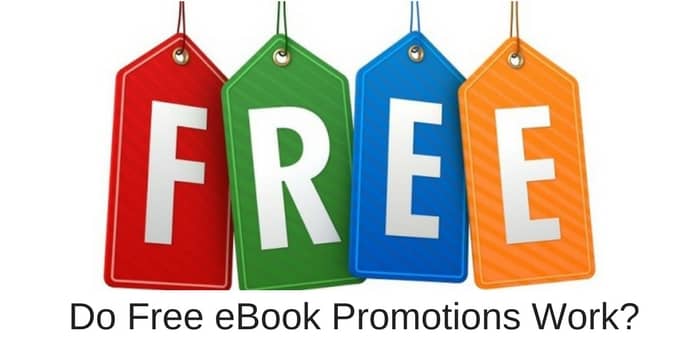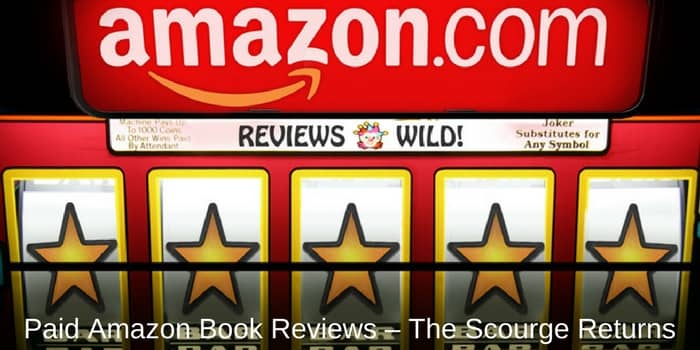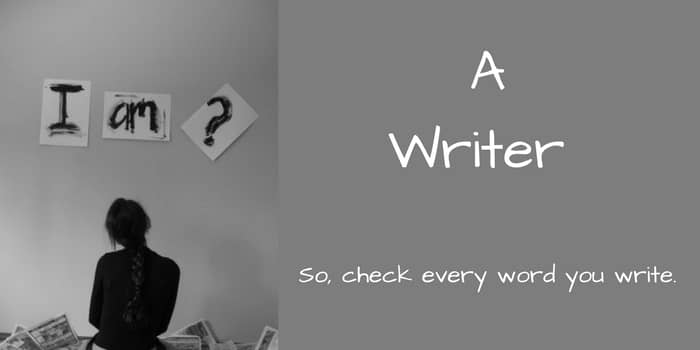 An article caught my attention recently. Fittingly published it would seem on fool.com, it gives some startling statistics regarding book publication and documents the entry of Amazon as a major new player in the publishing industry. However, the following paragraph is what really brings home the chilling reality for authors.
An article caught my attention recently. Fittingly published it would seem on fool.com, it gives some startling statistics regarding book publication and documents the entry of Amazon as a major new player in the publishing industry. However, the following paragraph is what really brings home the chilling reality for authors.
Armies of failed books
Amazon has some strong industry headwinds to push through, however. Out of at least 1.2 million titles published by the entire industry over the course of a year, almost 80% sell fewer than 100 copies. Only a few books at the very top of the sales lists make any real impact. One analysis estimates that only the top 3,000 or so books on Amazon’s sales list will sell 100 or more books a week, depressingly low figures when stretched out over a full year. Top e-books don’t fare much better — the top 1,000 best-sellers sell perhaps 500 copies a week.
Did you catch that? 80% of books published sell less than 100 copies. This is not just for ebooks or self-published titles but for the whole industry. One can only imagine that the percentage of self-published ebooks and paperbacks is even more depressing. However, it would seem that there is still enough ‘fat’ in the market to extract a corporate profit and Amazon is making steady progress towards nabbing a lion’s share of the publishing market.
In another report in the New York Times, Amazon Signs Up Authors, Writing Publishers Out of Deal, it is now no secret that Amazon is trying to cut out the middlemen. These being the literary agents and mainstream publishers. So what does this mean for authors? Probably a tough road ahead unless you are so successful that Amazon will come knocking at your door. For those authors who are hoping their publishing dreams lie with a literary agent, it will also be a tough lot.
With the traditional publishing process now being openly targeted by Amazon, agents and publishers alike are not likely to bet on an unknown, and will logically look for authors who they know will sell books. Hopefully. For all the sentiment that is attached to writing, at the end of the day, book publishing is a business and a very risky one at that. With 80% of published books selling less than 100 copies, it is high risk.
It would seem to me that Amazon is intent on attacking the book industry from the bottom and the top. That is, enticing the ‘cream’ to its new publishing houses and undermining the traditional publishers. While at the same time, encouraging self-publishing to enable them to have a huge stock of cheap and ultra-cheap ebooks to use on ‘el cheapo’ advertising-supported Kindles. Not a bad plan. Rake in the cream of publishing profits and add a new stream of advertising revenue from the other end.




The odds have always been terrible, all the way back to Gutenburg. The difference today is if you sell 100 copies a month of 10 different books, you can earn a living.
I agree Scott. The more books you have, the better chance you’ve got. Trying to survive on one or two books just doesn’t work unless you’re Bill Clinton or Steve Jobs’ biographer.
And for the rest of us inhabiting that 80%…
We keep plugging Jack. As we all have done for almost forever.
I agree, Scott. Volume is key. I also think that social media outlets are important, especially for the independents. Write and publish regularly, write well, and network. Making money isn’t for the casual. If the intent is to make money, a writer needs to work- hard.
It’s funny how so many are rushing to self-publish thinking that’s where the big bucks are. It’s like rushing to buy lottery tickets because you read about all the money a few won. Or going to Vegas to earn your mortgage payment for next month. Anyone who is writing to make money so they can quit their day job will most likely be disappointed. Amanda Hocking did it because she won the lottery– she was lucky, in the right place at the right time. John Locke did it because he’s a sharp business man who made his first million before the age of 30, and has been making money ever since, writing being his latest venture.
Write for the love of it, not for money, and you’ll be a happy writer not a frustrated one.
It’s true about the few outliers Karen. We read about these extremely rare ‘success stories’ in mainstream media as proof of the success of self publishing. But sadly the truth is very different. Most struggle to sell 100 copies per year.
However, my most disturbing concern is that Amazon have or will exploit those honest self publishers who understand the realities. The advent of advertising combined with ebooks odes badly. Cheap ebooks plus advertising content without the author’s permission make my stomach turn. It smells badly of exploitation.
I agree with you Karen, I self publish (…have just started self publishing) and am under no illusions that my future is filled with wondrous royalty cheques or the ability to stay home all day and write. I write because I love doing it and I self publish because I want to be the one in control of my book and if I sat on my thumb waiting for a publisher then my books wouldn’t get read for years yet, if ever. I just hate to see them gathering dust when I know people could be enjoying them.
My books are written to transport other people to another world for a few hours, not to transport me to a bigger house.
Derek, I love your blog. Topics are always so interesting and timely. Also, you made me smile today because, even though my book is nowhere near a best-seller, I realized I’m in the top 20%! Woohoo. I had no idea. Sorry to make it all about me, so back to you…thanks for your constant stream of great topics!
I have a couple problems with the quoted statistics. First of all, the quote states that most will sell less than 100 copies. In what timeframe? An ebook doesn’t go out of print, so there’s a long time to get an audience.
Then the quote states that 80% will sell less than 100 a week. Ok, so which is it, 100 total or 100 a week? I’d take 100 a week and leave smiling any day of the week and twice on Sunday (pun intended). Multiply that by 10 or 20 products, and more as time goes on, and that can be good money. It’s not necessary to hit it big with any one product to make $, at least theoretically, if one has lots of product out there.
But then again, that’s theory. Sometimes theory doesn’t match reality. All the same, to a newcomer to this business (me), it sure looks like the future is bright. :)
Hi, Derek
I’m not too surprised about the 80%. To be frank, amazon is nothing else than a huge slush pile with some rare exeptions. With the possibility to self-publish, everyone who can write, good or bad, talented or not can offer their humble writings to the public. Only those who really are good will stay at the top, those who aren’t will sink.
And not every traditionally published book will be a bestseller, the minority are, in fact. They might sell more than 100, but many sales just dry off after a few thousand. And yes, you need your book to be visible in the amazon top 20 charts to actually sell more than a few per month. It it’s not the case, do more promotion, or write a book readers will love. It’s the hard reality of writing, only very few will really make it.
It’s interesting that you mention the Amazon top 20 Stella. I need to do some more research on this, but Amazon’s bestseller lists are basically run by algorithms and not strictly by sales. It is often blatantly obvious that certain books are being ‘promoted’ and not in certain lists due to sales.
I’ve had this experience with one book that for some weird reason went to number one in one bestseller list overnight. It stayed there for two days before being headed by a number of clearly promoted books.
Hopefully I can find out more about this, but I am certainly a sceptic of Amazon’s bestseller lists.
It’s just something I’ve observed with my own books. The short stories made it into the dizzy hights of 167 overall charts, that’s about #6 in the humour bestseller list. And while there I sold at least 25 per day. It’s still nothing compared to others, but it was okay for me. When the ‘summer-hole’ hit. Sales went down drastically and I can be lucky to make 100 this month. The book hasn’t recovered since it”s not visible in the top 20 or movers and shakers.
There are certainly other reasons it hasn’t recovered. If people would’ve liked it so much, they had told others. It’s not the case, so back to drawing board for me. But I’m not cranky about it, I don’t blame anyone or anything, it’s just reality. I will see how my other book will go when I’ve finished the sequel and cleaned up ALL the remaining errors that keeps readers from buying. And I agree with someone else saying: if you want to be an author, then be professional, that includes to accept you’ve not written a bestseller without throwing hissy fits.
The news has always been bad for authors who are trade published mid-list authors.
As many have stated this is simply a FACT. No sour grapes, it is how it has always been. You want to be a published author – hey – prepare to be exploited!
My novels have been successfully selling in the tens of thousands and in print for over 10 years.
I know that my earnings have supported the publication of dozens of print runs of novels which have FAILED to earn out even a short print run.
Because my novels are erotica they are NEVER going to feature on anyone’s best seller list. One of the best kept publishing secrets is that romance and allied erotica are the best selling genera but because of their content they cannot be admitted to the august realms of the best seller listings.
Maybe Amazon.com’s decision to allow self published work to retail with them is temporary – but we have other options – let’s not forget the burgeoning numbers of etailers around who help authors like Smashwords.com.
My publisher does exactly NOTHING to sell my books. I have to work just as hard and for more money to sell my self-published books as I do to sell the trade-published ones for which I get paid 9 months after the sale at a measly 5%.
I know which sales job I’d rather have!
Thank you so much Christine for sharing the realities of your experience as a published author. As a sworn Indie, I do get bashed around the ears when I criticise traditional publishing and the legacy process of Lit agents. However I am of the firm belief that it is exploitive and needs to be treated to a big shake up. Current events will do this, but I wonder how long those who are enjoying long and expensive lunches at your expense will take to understand that their days and long lunches are numbered.
As a lot of ‘trad pubbed’ authors have told me, they are sent off to Twitter and Facebook by their agents to sell their books. So what’s the difference in being Indie?
Hello there to both Derek and Christine,
Just in response to what you both wrote here about getting oneself self-published and then promoting one’s novels… Derek, you mentioned Amazon is cutting out the middle man (traditional publishing houses, etc) and accepting indie authors for print or ebooks… Isn’t this a good thing? Wouldn’t more authors appreciate this to have more access to upload their written work to sites that will sell it for them (not just amazon but other start-up’s), even if it’s only ebook form, because then the author can make a profit… I mean, I think some self-ebook services guarantee 70-80% of sold profits? Wouldn’t authors flock to this kind of new “publishing” form?
…the wave of the future- few actual publishing houses, fewer paperbooks going to print and mostly all e-book formats–since it would seem this is the direction we are going in with technology and a paperless society.
I would really appreciate your thoughts… even just a quick note to clarify this point.
Thanks!
Jeanine
Thanks for your questions Jeanine.
While cutting out the ‘middleman’ may seem appealing in reducing distributors and wholesalers etc, it also cuts out technical and quality services. This has undoubtably caused a fall in standard that has tainted self publishing. Self publishing will need to mature over time and accept that some of these services are necessary even for independent authors.
On royalties, 70 or 80 % is not the norm. Amazon for instance only pay 70% royalty on books that are priced above $2.99 and it is only available in certain markets. i.e. US in particular. As a large percentage of self publishing authors opt for a lower price, the rate is 35%. With the introduction of KDP Select and free book promotion, I think one could say that this will further diminish returns on an overall per book basis.
It is worth remembering that self publishing has been around for some time and prior to the advent of the ebook, paperback and hard cover publishing was extremely attractive and profitable.
Therefore I think ebook self publishing, which has only been with us for a year or so, is a whole new ball game with a long way to go before it settles down.
Personally I couldn’t be happier with all the recent changes in the market and I’m more than happy with the service Amazon provides for self-publishers. At the end of the day, readers will only buy books they want to read. Sure, there is a lot of crap out there now but people simply won’t buy books the authors haven’t put their time, money and soul into producing. It’s always been hard for an author to earn a decent living, but I think the opportunities now are far greater then they were only a few years ago. I write in two different names, have multiple titles out (many of which have hit the bestseller lists for their genres) and I’m now a full time author and bringing in an income I can be proud of. But being an author is no different than any other job – if you want to be successful you have to work your ass off at it. Treat your books as a business not as a hobby.
Well put Stella.
However, there could have a been a few factors at play with your book. I had a similar experience with a book that had been published for quite some time. It suddenly went crazy. My belief is that these things can occur due to Amazon’s mysterious algorithms that are at work in building their bestseller lists.
These are also used to ‘force’ certain promoted books into the top lists.
The other point to remember is that even if your book wasn’t a screaming success, it could sell well later if you manage to write a new book that does well, as readers often buy more of an author if they read a book they like.
Oh, Derek
You’re saying there’s hope for me? haha
No, I know why my second book didn’t sell as well as the first and I’m working on it. Long story, second language writer, two proofers, still full of mistakes, etc.
Weird, that thing about your book. I’ve sold over 3k of the shorts was in the humour bestseller list top 20 for a long time, then: bang! I’ll bring out the sequel to my novel around Christmas, not sure if that’s going to give my shorts a boost; they’re completely different genres. But I’m sure the first book in the series will sell if the second sells.
I’m not ready to quit my day job but after querying 80 Literary Agents and getting 50 rejections I self published. At least I have a chance and more and more the stigma of self publishing is starting (although just a little) to fade. I believe I have a story to tell that might help some one. The changes in the publishing industry are giving people like me a chance.